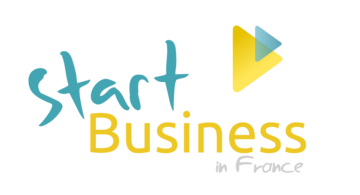The auto entrepreneur or micro-enterprise scheme allows for simplified registration formalities and simplified calculation and payment of your social charges and income tax contributions. Depending on your business development, your expectations or your level of expense, you may need to change to a different regime or business structure.
This article covers the main reasons which will push you to come out of the auto entrepreneur regime, such as going over the turnover threshold, wanting to have a business partner or having high expenses.
Your turnover exceeds the auto entrepreneur threshold
In order to remain within the auto-entrepreneur or micro-enterprise scheme, your turnover should not exceed a threshold called plafond, which depends on your activity:
- 170 000 € per year maximum for the sale of goods, objects, supplies of food to take aways, or accommodation such as hotels, bed and breakfast, rural lodgings and furnished house/flat for tourism called meublé de tourisme.
- 70,000€ maximum per year for services such as artisans or professions liberales.
If your projected turnover for the forthcoming year is above these thresholds, you will have to move to régime réel simplifié (i.e. keeping the same SIRET number, but with a different way of calculating your social charges) or start an incorporated business called société (EURL, SARL, SAS, SASU).
You want to have an associate
You may want to partner with one or more people to increase the capital of your company, but also to work with a team of people with other skills than you, extra professional contacts, and who will help you develop the business.
The auto enterpreneur regime is a sole trader registered under one person’s name and therefore does not allow for a business partner. You will need to change the legal structure of your business to an incorporated business celled société such as Société A Responsabilite Limitée (SARL) or Société par Action Simplifée (SAS) .
You have high business expenses
As an auto enterpreneur, the tax authority determines your taxable profit by applying a standard tax deduction to your turnover. This flat rate allowance varies according to your activity:
- 71% for purchase-resale activities, accommodation (gites, B&B, meublé de tourisme provided you also registered with your Mairie as meublé de tourisme).
- 50% for commercial services (i.e. artisans and services registered with Chambre de Commerce – BIC).
- 34% for other services (i.e. professions liberales – BNC).
If the sum of your expenses (fuel, premises, advertising costs, insurance, documentation, reproduction costs, current expenses, etc.) and your social contributions represents a share in your turnover higher than the percentage of the standard rebate applied by the tax office, it may be better for you to move to régime réel simplifié, where your social charges are based on your profit.
Examples of two auto entrepreneurs selling 40,000€/year:
- An auto entrepreneur selling some items online, with business expenses (including stock purchase) of 26,000€. Social charges as auto entrepreneur 40KE x 12.8% = 5,120€. Profit of 8,880€, while impots will consider that the business income is 40KE – 71% = 11,600€. It would be worthwhile considering changing regime to réel simplifié and also check if other expenses could be claimed, reinvestment be made or equipment depreciated.
- An auto entrepreneur registered as a consultant profession liberale and with some business expenses of 5,000€. Note that with 40KE, this consultant would have to start charging TVA to his/her customers as the threshold of 35,200€ is passed. Social charges of 40KE x 22% = 8,800€. Profit of 26,200€, while impot will consider a business income of 40KE – 34% = 26,400€. No real difference.
Switching from micro entrepreneur to reel simplifie
As an auto entrepreneur your social charges regime is called micro social. You cannot change regime halfway through the year to reel simplifie. You will therefore have to write to Impot and RSI/URSSAF to inform them that you wish to change regime the following year. These letters should be sent before 31st December in order for the regime change to be applied on 1st January. Ideally, you will book a meeting with an accountant around October time to discuss your plans to switch to this regime, which will give you plenty of time to get ready.
There will be not changes to your legal structure, as you will remain a sole trader entreprise individuelle and will keep the same SIRET number. This means that your accounts and affiliatation details with RSI/URSSAF, Impot and the body handling your health cover will not change.
Switching from auto entrepreneur to an EURL/SARL or SASU/SAS
If you plan to start an incorporated business, this change can be made any time along the year, as you will technically close the auto-entrepreneur down to start an incorporated business called société.
You will be looking at starting an EURL or SASU if you have no business partner and a SARL or SASU, if you have a business partner. Both legal structures work in a similar way as you can claim for expenses and depreciate equipment, but the status of the entrepreneur, the social charges associated and the taxation on profit and dividends are very different. The choice between one or the other will vary according to whether you need to draw a monthly income, whether you need to a heath cover and whether you can afford to wait for the dividends.
It is best to plan a meeting with an accountant a couple of months before starting the incorporated business, as an EURL/SARL/SAS/SASU registration can take 3 to 4 weeks.
Are you wondering whether you should change regime? Book a call with Valerie to discuss your situation and assess what is the best move forward for your French business.
